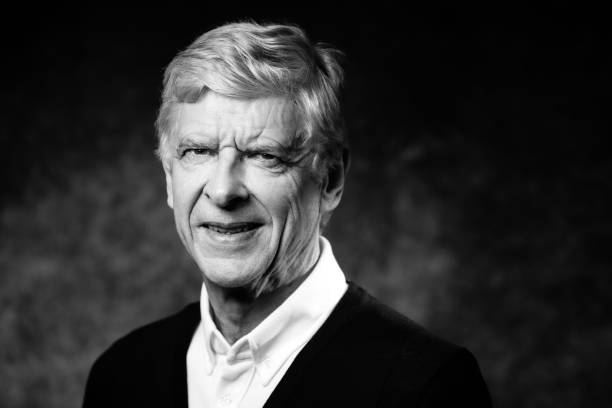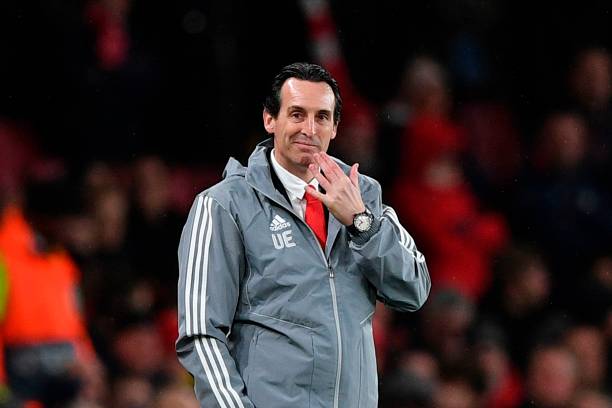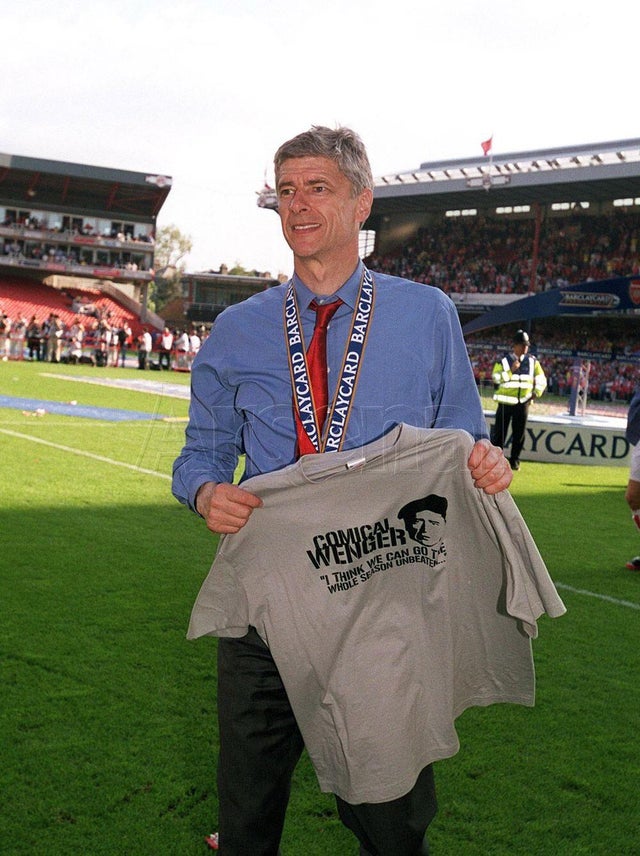In April 2018, Arsene Wenger announced his departure in the aftermath of a second successive failure to guide Arsenal into the Champions League.

Campaigns such as ‘Wenger Out’ appeared infantile and petulant, especially given their timing to coincide with the twentieth anniversary of Arsenal’s first league title under Wenger.
Events since the end of 2017/18 prove that the old saying ‘better the devil you know’ is as valid as ever, with Arsenal’s class of 2019/20 once again crumbling in the face of supposedly ‘weaker’ opposition at the weekend.
Emery Unprepared for Egos

Saturday’s disappointing 1-1 draw, against newly-promoted Sheffield United, was a marked contrast to the days of the ‘Invincibles’, and even the relative stability Wenger offered during his nine-year trophy drought in London.
Even so, it cannot be denied that Wenger ultimately looked like a distant, aged parody of the man who forged a side containing Bergkamp, Henry and Vieira. In turn, he was widely perceived as an antiquated figure prior to his departure from the Emirates Stadium.
Letting Wenger go a year ahead of the apparent schedule may have been a poor call in hindsight, but the general party line amongst many Gunners fans is that Unai Emery’s appointment was a bigger mistake than not permitting Wenger to stay on. Yet, Emery himself is a victim of these events as much as Wenger, and the long-suffering Arsenal fans that once so heartily adored him.
The Arsenal dressing room Wenger left behind in 2018 was very different to the one he entered 22 years previously, and stars with well-connected agents can now afford to play with disdain at the direction of a regime. The decline of Mesut Ozil in the last two years of Wenger’s reign, along with his form throughout Emery’s sole full season at the helm, is one particular case study.
Ultimately, the choice had to be a manager with a rich background in modern Premier League culture on top of documented success, in order to inject a sense of direction within those potentially hoping to leave the club.
Unfortunately, such men were in short supply at the time of Wenger’s departure, and still are today, even though Emery had incredible success in the Europa League with Sevilla on his CV. That success blended well with his useful ties to PSG through his managerial spell there, but nothing on earth could prepare him for the impending culture shock.
A Necessary Mistake?

Emery’s unpreparedness was reflected in the statistics that he left behind upon his sacking as Arsenal manager back in November. Nobody will assert that his dismissal came before time, and if you take a look here, you can see clearly what the latter days of Emery’s short reign did to Arsenal’s standing in betting circles and prediction tables – amongst other key elements that show the esteem (or lack thereof) in which certain clubs are held by experts.
The month of his departure itself was particularly alarming, with Arsenal having gone seven games without a win prior to Freddie Ljunberg’s debut as caretaker manager. The Gunners had shipped two or more goal in five of those games, while showing an embarrassing inability to hold out, having conceded goals beyond the hour mark in each of the six games prior to Emery’s sacking.
Regardless, for those who still believe that Wenger left at the right time, it may be argued that the ‘Le Professeur’ was given a much greater shelf life at Arsenal than expected. This is especially true when one considers the aforementioned trophy drought. Yet, with the gift of hindsight, few Arsenal fans will begrudge that augmentation in light of recent developments, and would do well to see beyond the much-highlighted weaknesses of his regime.
Even using terms like ‘weakness’ next to Wenger is difficult, as he never truly experienced a quickfire downfall in the common sense. Rather, he found himself being phased out by a change of culture, stretched out over a period of around fifteen years.
That process arguably began with Roman Abramovich’s acquisition of Chelsea in 2003, immediately catapulting the Blues into heights that had recently been near-impossible to envisage. In essence, Chelsea replaced Manchester United as Arsenal’s main title rival almost overnight, and gave potential superstars taken in by the ‘London factor’ a more financially-attractive alternative on paper.
Manchester City’s newfound riches in the late 2000s promised further disruption to the makeup of what had by then become the now-classic ‘big four’. All the while, Arsenal’s famous persistence in playing possession-based football under Wenger was being unlocked by the increasing shift towards pressing and counter-attacking in the top-flight.
What worked so well for Barcelona overseas ultimately appeared redundant on English shores when employed by Wenger’s charges. Alongside the league’s ‘noveaux-riche’ enjoying unprecedented influence over the transfer market, the subsequent lack of silverware undoubtedly hampered Wenger’s ability to attract the top talents, in what was a much more competitive setting compared to his fledgling years at Highbury.
A question with no right answers

There are ultimately two schools of thought about Wenger’s departure, and whether or not his departure at the time of peak discord amongst fans was a coincidence. Wenger himself has stated that he felt forced to quit the club, but given his age, nobody can say with any certainty how much that was down to results.
At face value though, Arsenal have since plumbed depths that were unseen under Wenger, which seems to affirm point-blank that letting Wenger go a year ahead of schedule was a mistake. Spending Christmas Day in the bottom half of the table for the first time since 1983 was a particularly low point, as was Arsenal’s first run of three consecutive home league defeats since the spring of 1977, ironically confirmed via the 2-1 defeat to none other than Chelsea in December.
Even at their very worst during the Wenger era, the Gunners were never in real danger of falling out of the top five. Indeed, had Wenger opted to stay on foreign shores in October 1996 instead of joining Arsenal, the titles of 1998, 2002 and 2004 would most likely have gone instead to Manchester United, Liverpool and Chelsea respectively.
If not the skill, it is at least the stability associated with those halcyon days which rookie manager Mikel Arteta must restore. Only by doing this empirically, to the tune of improved league placings and silverware, can he reverse ideas that Wenger’s departure was a grievous error.
In doing so, Arteta and his charges will reaffirm the belief that Arsenal FC is bigger than one manager, and always has been.
